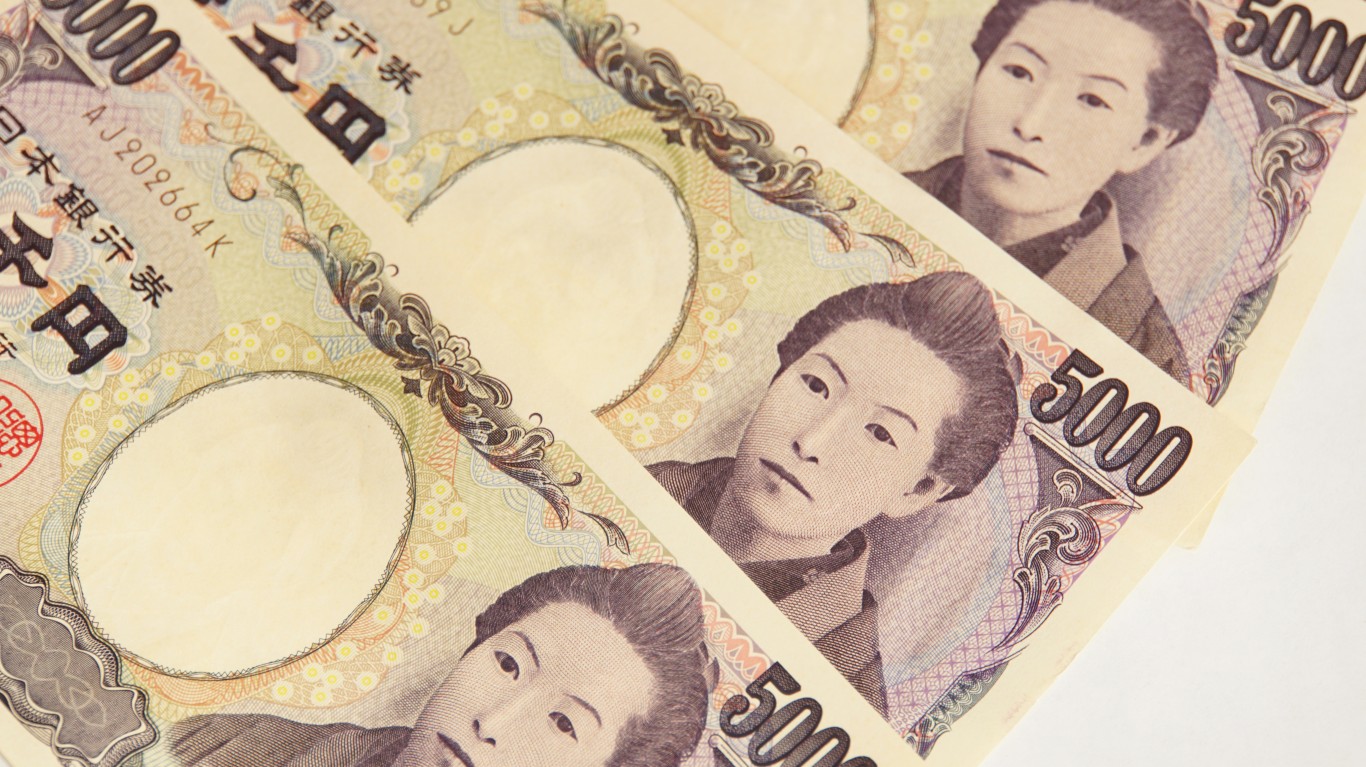Investing
Yen Surges 3.3% as Bank of Japan Changes Policy in Surprising Move

Published:
Last Updated:

The Japanese yen has gained 3.3% against the USD after the Bank of Japan made a surprise decision to adjust its yield curve control program, allowing a benchmark interest rate to rise from 0.25% to 0.5%. Meanwhile, markets in the Asia-Pacific fell, with the Nikkei 225 losing 2.46%.
The Bank of Japan has made a surprise adjustment to its yield curve control program, which has sparked a sharp jump in the yen. More specifically, the BOJ will now let the country’s 10-year bond yields rise to around 0.5%, up from the previous upper limit of 0.25%.
The central bank kept its target range around zero for the benchmark government bond yield. It also left its short-term interest rate low at -0.1%. However, following the announcement, the 10-year yield, which had been stuck around 0.25% for months, increased to 0.40% in afternoon trading.
In its policy statement released on Tuesday, the BOJ didn’t mention inflation as a reason to let the yield on government bonds rise as high as 0.5%. The adjustment is intended to “improve market functioning and encourage a smoother formation of the entire yield curve, while maintaining accommodative financial conditions,” it said.
Bloomberg has claimed that all 47 economists surveyed expected no policy change, which explains why the move has surprised the markets so severely. However, most economists had mentioned that the bank should do more to improve the functioning of the bond market.
As reported, speculations that the Japanese government might intervene in currency markets started to grow in mid-September after authorities warned about the yen’s volatility. By late October, the country’s policymakers allegedly intervened twice in the FX market to shore up the national currency, which failed.
The surprise decision has sent shock waves across global financial markets, particularly in the Asia-Pacific region. The Nikkei 225, a stock market index for the Tokyo Stock Exchange, fell 2.46% to 26,568.03, leading to losses in the region. The Topix, another important stock market index for the Tokyo Stock Exchange in Japan, fell 1.54% to 1,905.59.
Furthermore, the Korea Composite Stock Price Index (Kospi) fell 0.8% to 2,333.29 while the S&P/ASX 200 (XJO), Australia’s leading share market index, traded 1.54% lower to close at 7,024.3.
The Hang Seng Index, a free-float-adjusted market-capitalization-weighted stock-market index in Hong Kong, fell 1.3% in its final hour of trade. In mainland China, the Shenzhen Component fell 1.58% to 10,949.12, and the Shanghai Composite fell 1.07% to 3,073.77.
In the US, the Nasdaq Composite, the S&P 500, and the Dow Jones Industrial Average all fell overnight, down by 1.49%, 0.90%, and 0.49%, respectively, at the close.
Meanwhile, Bank of Japan Governor Haruhiko Kuroda has said that the central bank might further ease its monetary policy if needed. He added that it is too early to debate an exit from the current policy and that strategies for an exit should be discussed at policy meetings if the central bank nears its inflation target of 2%.
The BOJ also laid out a plan for the first quarter of 2023 that calls for purchasing around ¥9 trillion (worth around $68 billion) in Japanese government bonds per month from January until March, up from the previous target of ¥7.3 trillion a month.
Meanwhile, the Japanese yen has surged to a four-month peak against the dollar. As of now, one dollar is traded for 132 or 133 yen, compared with more than 137 yen before the BOJ’s decision.
This article originally appeared on The Tokenist
The Average American Is Losing Momentum On Their Savings Every Day (Sponsor)
If you’re like many Americans and keep your money ‘safe’ in a checking or savings account, think again. The average yield on a savings account is a paltry .4%1 today. Checking accounts are even worse.
But there is good news. To win qualified customers, some accounts are paying more than 7x the national average. That’s an incredible way to keep your money safe and earn more at the same time. Our top pick for high yield savings accounts includes other benefits as well. You can earn up to 4.00% with a Checking & Savings Account today Sign up and get up to $300 with direct deposit. No account fees. FDIC Insured.
Click here to see how much more you could be earning on your savings today. It takes just a few minutes to open an account to make your money work for you.
Thank you for reading! Have some feedback for us?
Contact the 24/7 Wall St. editorial team.